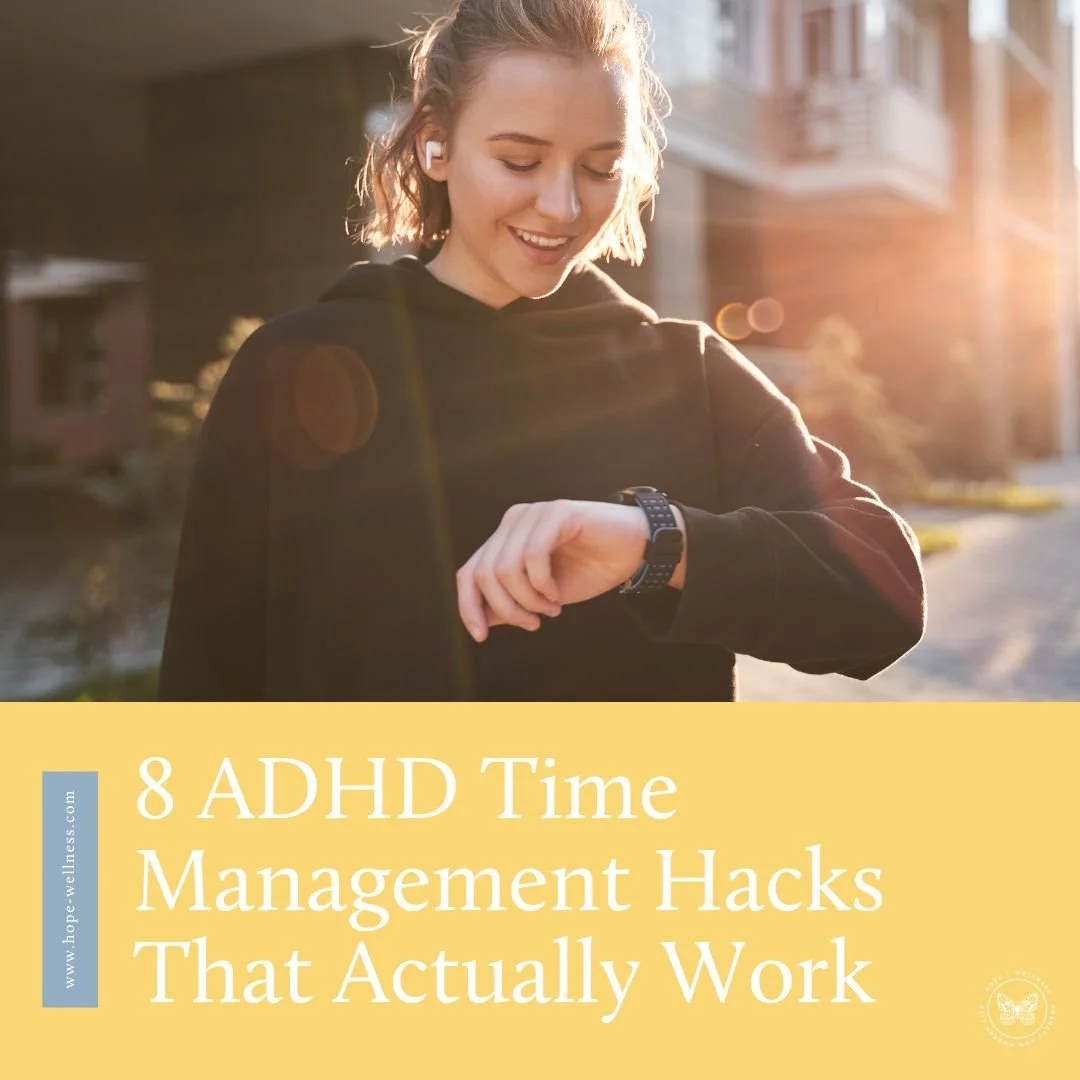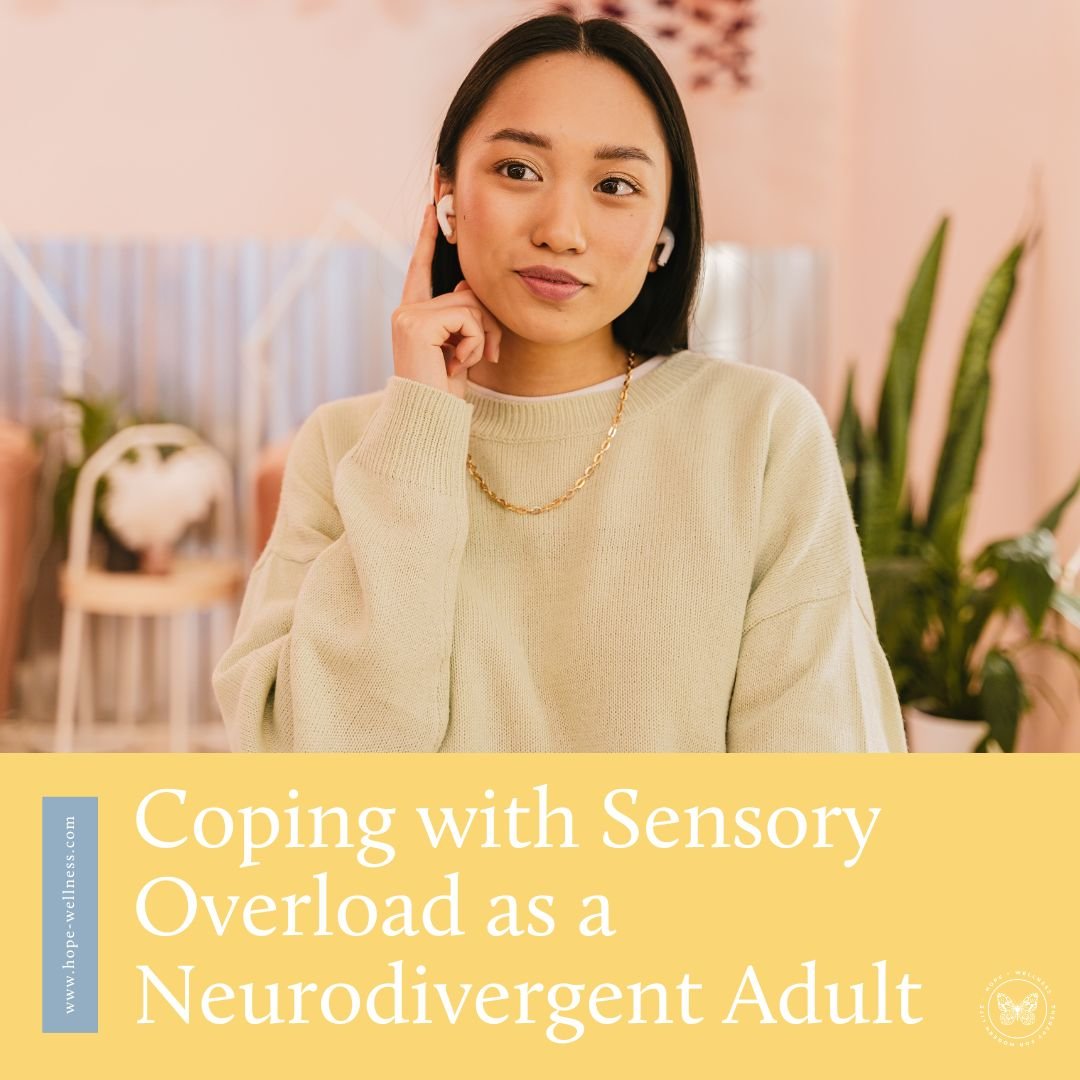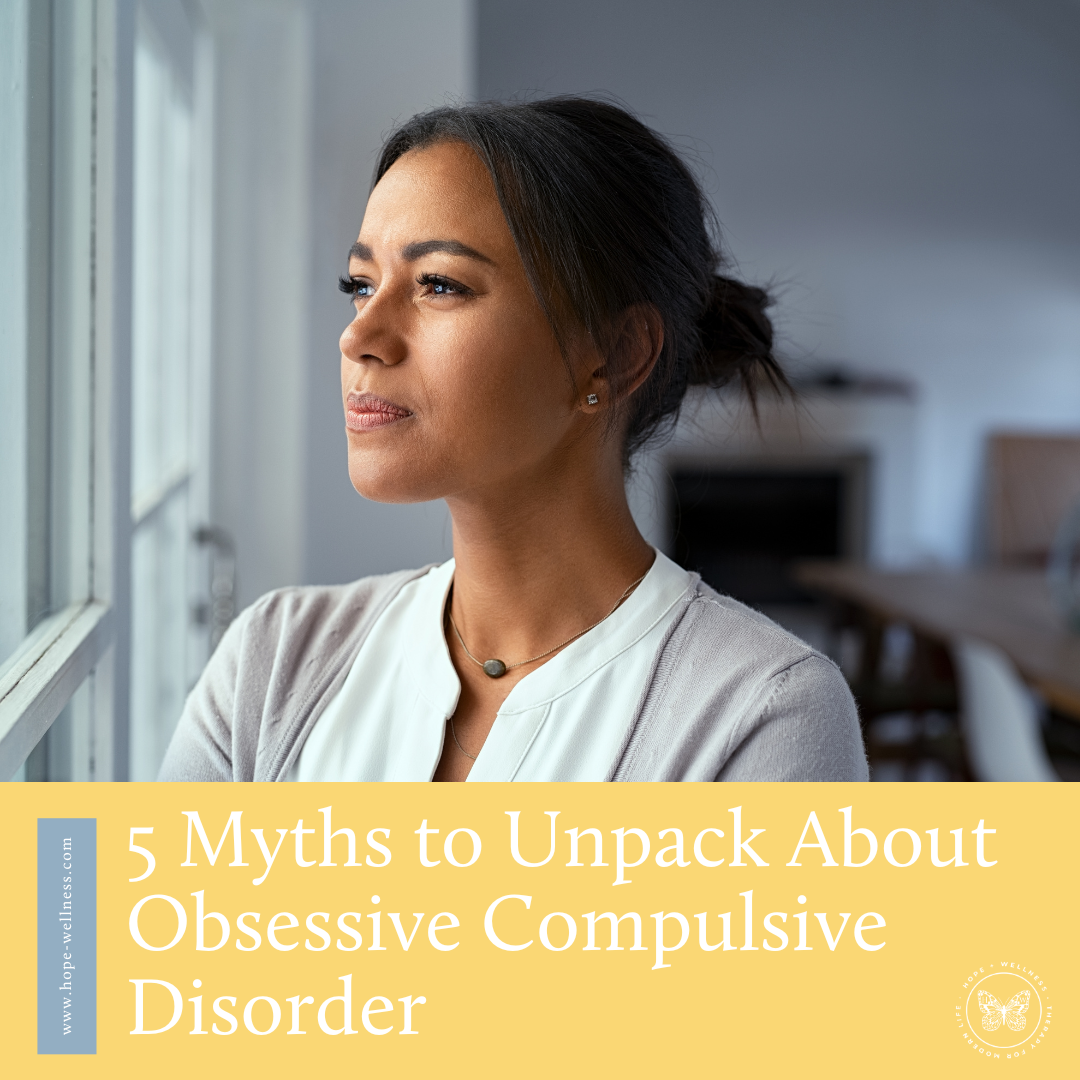5 Myths to Unpack About Obsessive Compulsive Disorder
What comes to mind when you think of Obsessive Compulsive Disorder (OCD)?
Many people who don’t have OCD imagine that it is a disorder that compels you to keep things neat and organized. This common misunderstanding of what OCD actually is can be traced back to the way it’s portrayed in the media, especially on TV.
Characters on TV are often written as “a little OCD” for a laugh. Obsessive Compulsive Disorder isn’t a comedy bit, it’s a common mental health diagnosis impacting millions of people in the United States.
What is OCD?
Obsessive Compulsive Disorder is a disorder characterized by a person experiencing distressing, unwanted intrusive thoughts. These thoughts are unwelcome, and are often disturbing to the person experiencing them. The distress caused by these thoughts is often relieved through behaviors called compulsions, which only help temporarily. According to the National Institute of Mental Health (NIMH), around 2.3% of adults in the United States will develop OCD during their lifetime.
There are two aspects of OCD - obsessions and compulsions.
Obsessions in OCD are the repetitive, distressing, and unwelcome thoughts and fears. Compulsions are the actions taken to help relieve the distress of obsessions. Sometimes a person with OCD will experience obsessions more strongly than compulsions or vice versa.
Compulsions can help relieve the distress and anxiety that the person is experiencing, but usually not for long. When the distress returns, the cycle begins again. Eventually, the compulsions that are used to relieve distress become a habit, and they can often get in the way of everyday life.
For example, someone with OCD might have repetitive, unwelcome thoughts about experiencing a break in control and hurting themselves or someone else. Unwanted thoughts like this can be very disturbing and scary. To deal with the intensely distressing emotions brought on by the thoughts of harming themselves or others, they might check repeatedly to make sure that the oven is off, or that the car is in park, or that the doors are locked, or that everyone is safe. The amount of time and energy that it takes to keep up this cycle can have a huge impact on other areas of life, like work or relationships.
So, what isn’t OCD? Let’s unpack these common misconceptions about Obsessive Compulsive Disorder:
OCD means you clean a lot or are organized
Chances are, when you think of OCD, you think of this misconception because it’s so popular. On TV or in movies, we often see characters identify as “so OCD” because they keep things clean. Remember that OCD is a disorder, not a personality trait. People commonly mistake OCD for being neat and organized. While some people who have OCD do experience compulsions around cleanliness, many do not.
You can be “a little OCD”
You either have Obsessive Compulsive Disorder, or you don’t. It’s not something you can have “a little” or only experience once in a while - it’s a serious disorder that has a major impact on people’s lives. It can be frustrating for people with Obsessive Compulsive Disorder to hear people who don’t deal with the distressing aspects of OCD claim to have the disorder just because they’re a little Type-A.
OCD is a slight inconvenience or something to laugh about
Everyone experiences things differently, but for many folks OCD is much more than a slight inconvenience, the way it’s portrayed on TV. OCD can be extremely debilitating and impact all areas of a person's life. OCD is not something to laugh about, even though it’s commonly played for a laugh on the screen.
Statistics from the NIMH show that 50.6% of people with OCD had serious impairment, 34.8% of adults had moderate impairment, and 14.6% had mild impairment. It’s difficult to cope with a disorder that causes so much distress, and it can be upsetting to people with OCD to constantly see their struggle downplayed.
Stress causes OCD
Some people believe that OCD pops up in moments of stress, and goes away when your stress level goes down. In fact, OCD is present with or without stress. Eliminating stress won’t make OCD go away, if you even can eliminate stress. Being a human is inherently stressful, so it’s going to be hard to be completely stress-free at all times. Like many mental health disorders, stress can exacerbate symptoms, but that doesn’t mean that the stress itself is causing the symptoms.
There’s nothing you can do about having OCD
Since the seriousness of Obsessive Compulsive Disorder is commonly misunderstood, many people believe there’s little to nothing that you can do about having OCD. In fact, OCD is very treatable. Therapy and medication are two of the ways that OCD can be treated. The therapy approaches that counselors typically use for people dealing with OCD include:
Exposure and Response Prevention (ERP), which helps the person confront the intrusive thoughts in a controlled environment.
Cognitive Behavioral Therapy (CBT), which can help you to identify negative patterns in your thinking and redirect your thoughts in more positive ways.










Health anxiety is distressing while you're waiting for a diagnosis or other results. Here's how you can cope.